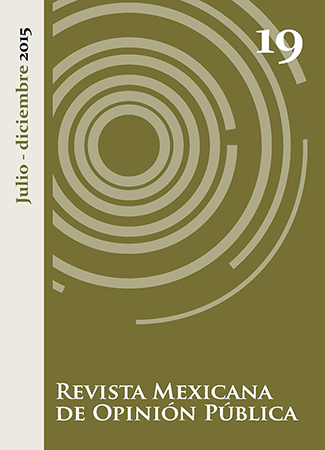Political Communication and Social Networks. Analysis of Campaigns for Legislative Elections of 2013 in the City of Buenos Aires
Main Article Content
Abstract
In this paper is discussed the utility and reach of social networks during electoral campaigns. Results of a reserach are presented. It analyzes the use of social networks by candidates in the lesgislative elections that took place in the City of Buenos Aires on October of 2013. The presence of the candidates in Facebook and Twitter during the campaign was quantified. It was also analyzed which strategy was chosen by each candidate on the social networks. The quality and quantity of their interactions with their followers was evaluated. The results indicate that the candidates did not profit the communicational possibilities offered by online social networks for the political campaigns in terms of sharing their plataforms and relating in a more direct way with voters. Instead, they made a limited and traditional use of them.
Article Details
Citas en Dimensions Service
References
ALLAN, Stuart, Citizen Witnessing Revisioning Journalism in Times of Crisis, Polity Press, Cambridge, 2013.
CASTELLS, Manuel, Communication Power. Oxford University Press, Oxford, 2009.
FOOT, Kirsten A. y Steven M. Schneider, Web Campaigning, MIT Press, Cambridge, 2006.
HOLTZ-BACHA, Christina, “Web 2.0: nuevos desafíos en comunicación política”, Diálogo Político, año 30, núm. l, Konrad-Adenauer Stiftung A. C., Montevideo, 2013, pp. 11-28.
JUNGHERR, Andreas y Harald Schoen, Das Internet in Wahlkämpfen, Konzepte, Wirkungen und Kampagnenfunktionen, Springer VS, Alemania, 2013.
LAKOFF, George, The Political Mind: A Cognitive Scientist's Guide to Your Brain and Its Politics, The Penguin Group, Nueva York, 2008.
LILLEKER, Darren y Nigel Jackson, “Elections 2.0: Comparing E-Campaigns in France, Germany, Great Britain and the United States”, Das Internet in Wahlkämpfen. Konzepte, Wirkungen und Kampagnenfunktionen, Springer VS, Alemania, 2011, pp. 96-116.
MAAREK, Philippe, “Politics 2.0. New Forms of Digital Political Marketing and Political Communication”, Trípodos, Barcelona, vol. 34, 2014, pp. 13-22.
PANAGOPOULOS, Costas, Politicking Online, Rutgers University Press, Nueva Jersey, 2009.
RODRÍGUEZ, Malvina Eugenia, “Partidos políticos y redes sociales en Argentina”, Diálogo Político, Konrad-Adenauer Stiftung A. C., Montevideo, vol. 1, 2013, pp.73-99.
S/A, “How the Presidential Candidates Use the Web and Social Media. Obama Leads but Neither Candidate Engages in Much Dialogue with Voters”, Pew Research Center, Journalism and Media 15 de Agosto de 2012. Recuperado en http://www.journalism.org/analysis_report/how_presidential_candidates_use_web_and_social_media
SHIRKY, Clay, Cognitive Surplus, Penguin Books, Londres, 2010.
STAMPLER, Laura, “Obama Spent More on Online Ads than it Cost to Build the Lincoln Memorial”, Business Insider, noviembre, 2012.
WESTEN, Drew, The Political Brain, Public Affairs, Nueva York, 2007.
WILLIAMS, Christine y Girish Gulati, “The Political Impact of Facebook: Evidence from the 2006 Midterm Elections and 2008 Nomination Contest”, Politicking Online, Costas Panagopoulos (ed.), Rutgers University Press, Nueva Jersey, 2009, pp. 72-291.

Revista Mexicana de Opinión Pública por Universidad Nacional Autónoma de México se distribuye bajo una Licencia Creative Commons Atribución-NoComercial-SinDerivar 4.0 Internacional.
Basada en una obra en http://revistas.unam.mx/index.php/rmop.
